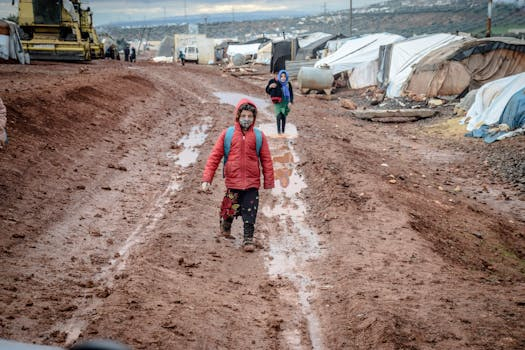Humanitarian Law in the Context of Emerging Global Conflicts
}
As conflicts continue to arise across the globe, the safety and well-being of civilians become increasingly threatened. In the midst of these chaotic and violent situations, humanitarian law provides a set of guidelines and principles intended to protect and assist those who are most vulnerable. However, with the emergence of new forms of warfare and global conflicts, the application and effectiveness of humanitarian law have come into question. In this article, we will explore the crucial role of humanitarian law in the context of emerging global conflicts, and the challenges it faces in keeping up with the ever-changing nature of warfare.
The Origins of Humanitarian Law
Humanitarian Law, also known as the Law of Armed Conflict, has its roots in ancient civilizations where customs and traditions were observed to regulate the conduct of war. However, it was not until the 19th century that the first modern international treaties were established, with the most notable being the Geneva Conventions of 1864. These conventions set out to protect wounded soldiers and prisoners of war, and established the basic principles of humanitarian law – namely, the protection of civilians and the distinction between combatants and non-combatants.
The Role of Humanitarian Law in Modern Conflicts
With the rapid advancement of technology and the evolution of warfare, the nature of conflicts has changed drastically in recent years. Gone are the days of conventional warfare, where armies battled on open fields. Today, conflicts are fought in urban areas, involving a mix of military, political, and social factors. In the midst of these complex and unpredictable conflicts, the role of humanitarian law becomes even more crucial in ensuring the protection of those who are not directly involved in the fighting.
The Importance of Protecting Civilians
One of the main principles of humanitarian law is the protection of civilians. However, this principle is constantly being challenged in modern conflicts, where non-state actors and terrorist organizations operate within civilian populations. This has led to the blurring of lines between combatants and non-combatants, making it difficult to distinguish legitimate targets from innocent civilians. As a result, civilians often become victims of indiscriminate attacks, causing widespread devastation and loss of innocent lives.
Furthermore, the use of new technologies, such as drones and cyber warfare, has also raised concerns about the protection of civilians. The use of these technologies in targeted attacks has increased the risk of civilian casualties, as it is often difficult to verify the identity of the target. This poses a significant challenge for humanitarian law, as it struggles to adapt to the changing face of warfare and protect civilians in these situations.
The Challenges of Compliance and Enforcement
Another challenge facing humanitarian law in the context of emerging global conflicts is compliance and enforcement. Despite the existence of international treaties and conventions, there is no global governing body with the authority to enforce these rules. This means that states and non-state actors can often act with impunity, disregarding the rules of humanitarian law and committing war crimes without consequences.
Moreover, in situations where conflicts involve multiple parties, it becomes even more difficult to hold individuals accountable for their actions. The lack of a central authority and the politicization of conflicts often result in a lack of cooperation and accountability. This not only undermines the credibility of humanitarian law but also puts civilians at risk of further violations.
Conclusion
In conclusion, humanitarian law plays a crucial role in protecting civilians and regulating the conduct of war. However, with the changing nature of conflicts, it faces numerous challenges in ensuring its effectiveness. The blurring of lines between combatants and non-combatants, the use of new technologies, and the lack of effective compliance and enforcement mechanisms are just some of the obstacles that humanitarian law must overcome in the context of emerging global conflicts. It is essential for the international community to address these challenges and strengthen the implementation of humanitarian law to ensure the protection and well-being of all individuals affected by armed conflicts.









